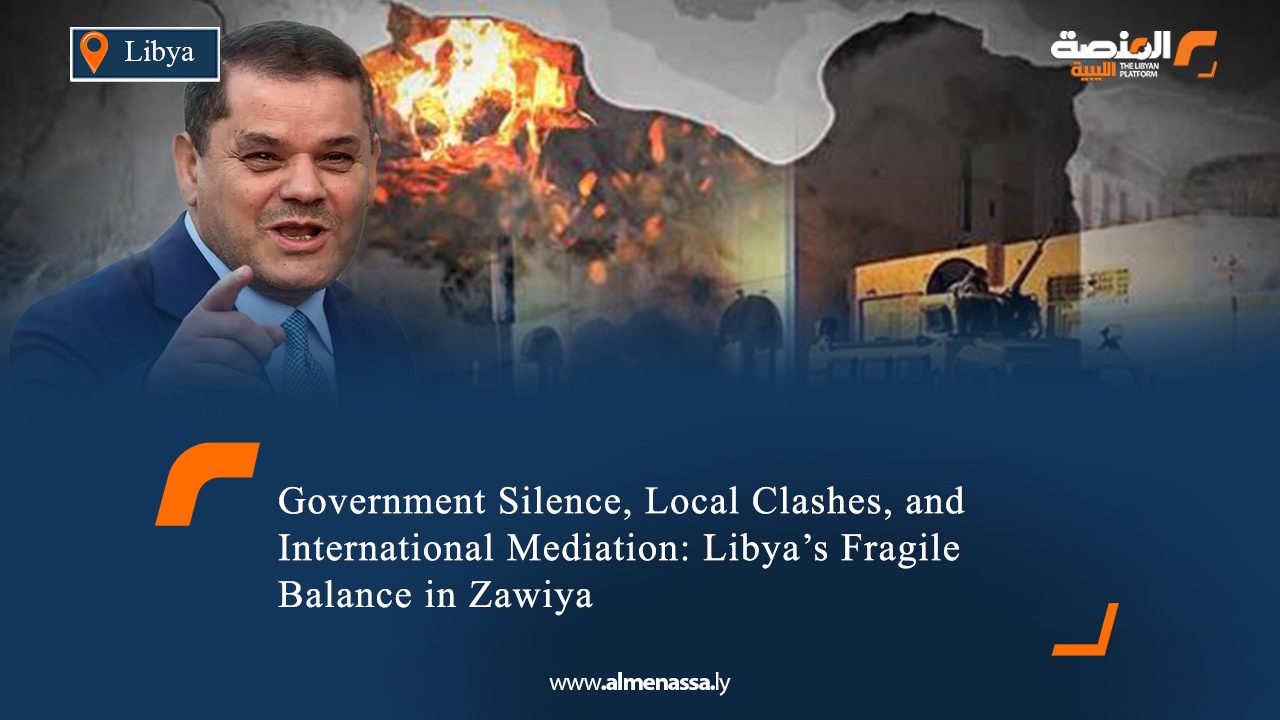While Prime Minister Abdul Hamid Dbeibah focused this week on institutional reform and anti-corruption messaging, violent clashes erupted in the city of Zawiya, exposing the fragile security situation in western Libya.
During a ceremony hosted by the Audit Bureau, Dbeibah emphasized the need for cooperation between the executive branch and oversight institutions, calling for political will and effective governance to combat corruption. He urged ministers and agency heads to support the Bureau’s efforts to protect public funds, but made no public comment on the escalating violence in Zawiya.
On the same day, armed confrontations broke out between the Security Threats Unit and local militias known as “Al-Kabwat,” following the arrest of several group members. The fighting spread across multiple neighborhoods, including Harsha, where a mortar shell caused severe damage and claimed the life of Mohamed Salem Khammag, a member of the Petroleum Facilities Guard.
Footage showed gunfire exchanged from inside a private school, raising alarm over civilian safety. The Zawiya Oil Refining Company lifted its emergency alert after calm was restored, but warned that repeated incidents could threaten vital infrastructure. Power services were also disrupted, with six generation units at the South Tripoli station going offline, triggering electricity outages. The National Human Rights Institution urged residents to remain indoors and exercise caution.
Meanwhile, UN envoy Hanna Tetteh met with the High Council of State’s Roadmap Committee to discuss the next phase of Libya’s political process. She reaffirmed the UN’s commitment to structured dialogue as a platform for inclusive national engagement. Talks have progressed to the second phase of the roadmap, focusing on government formation and sovereign appointments.
A joint meeting between the sovereign appointments committees of the House of Representatives and the High Council of State is scheduled for Thursday in Benghazi. The agenda includes proposals to restructure the Electoral Commission and unify Libya’s anti-corruption bodies to strengthen financial oversight.


